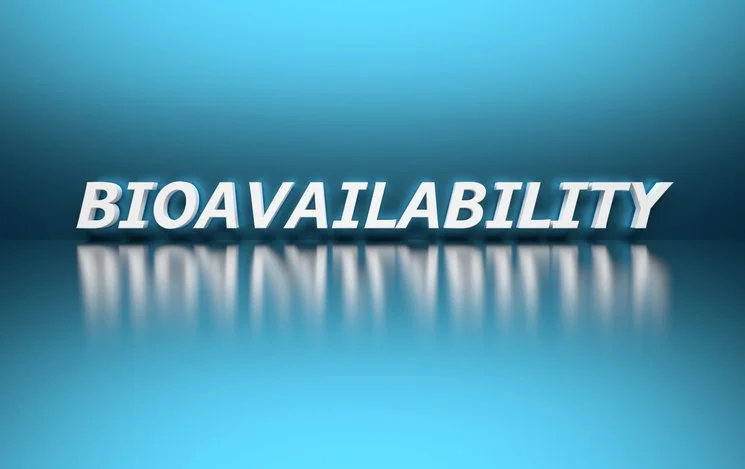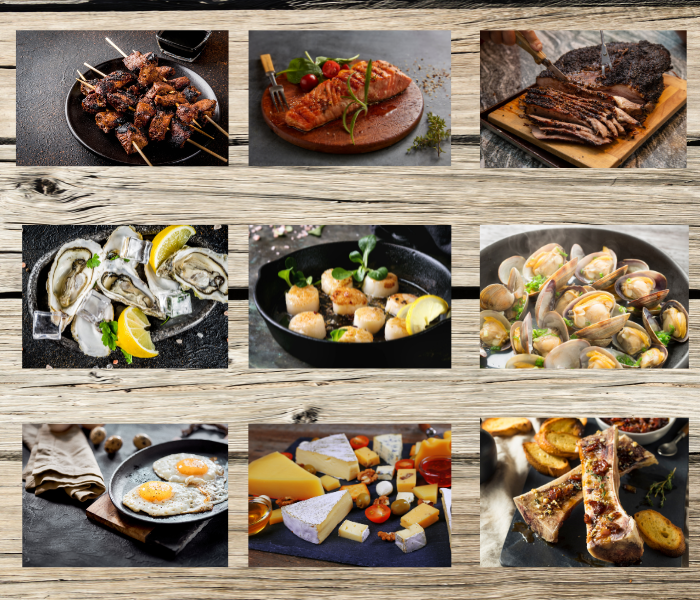How Do You Get All Of Your Nutrients?
For many years, the prevailing wisdom has been that vegetarian and vegan diets offer superior health benefits compared to diets that include animal products. This perspective is usually coupled with unfounded concerns over the health impacts of consuming meat, eggs, and animal fats and legitimate ethical considerations about animal welfare. When I inform people that I am on the carnivore diet and choose not to eat many fruits, nuts, and vegetables, the question I get asked most often is, " How do you get all of your nutrients, then?" The reality is that question should be posed to those who choose vegan and vegetarian diets because, as we will see, plant-based foods don't contain all of our required nutrients. However, animal-based diets do. This post will cover the misguided belief that plants provide complete nutrition and cover which nutrients are the most likely to be missing or deficient.
Nutrient Density and Bioavailability
One of the key arguments in favor of including animal products in the diet is their nutrient density and the bioavailability (the ability of the body to absorb and use) of these nutrients. Animal products like organ meats, other meats, fish, and shellfish are among the most nutrient-dense foods available. They provide essential vitamins and minerals that are more readily absorbed by the body compared to their plant-based counterparts. This is particularly significant for nutrients such as Vitamin B12, iron, calcium, zinc, long-chain fatty acids like EPA and DHA, and fat-soluble vitamins such as A and D.
The Challenge with Plant-Based Nutrients
While plant-based diets are rich in many nutrients, they also present challenges in terms of nutrient bioavailability. For instance, the anti-nutrients like phytate found in grains and legumes can inhibit the absorption of minerals. Furthermore, essential nutrients like Vitamin B12 are not available in plant foods in forms that the human body can use effectively. This has led to widespread B12 deficiency among vegetarians and vegans, with studies showing that up to 92 percent of vegans and 77 percent of vegetarians may be deficient in this crucial nutrient. 1,2,3
Vitamin B12
Vitamin B12, also known as cobalamin, is essential for the formation of red blood cells, cell metabolism, nervous system function, and DNA production. 4 It is not produced by the plant kingdom. Therefore, animal-based foods are the only natural source.
The Essential Fatty Acids
Long-chain omega-3 fatty acids, such as EPA and DHA, are crucial for various physiological functions and are primarily found in animal products. The plant-based omega-3 fatty acid, ALA, has a very low conversion rate to EPA and DHA in the human body. This means that vegetarians and vegans might not get enough of these essential fatty acids, which can have implications for cardiovascular health, cognitive function, and overall inflammation. 5
The Fat-Soluble Vitamins A and D
Vitamin A and D are two fat-soluble vitamins that are largely missing from vegetarian and vegan diets. These vitamins play vital roles in immune function, bone health, and more. While plant foods contain beta-carotene, a precursor to Vitamin A, the conversion rate to the active form of Vitamin A is highly inefficient in humans. Similarly, Vitamin D is predominantly found in animal products, with very few plant-based sources available. 6
Calcium and Iron: The Absorption Dilemma
Calcium and iron are two minerals that are particularly problematic in plant-based diets. While plants like leafy greens may contain these minerals, their bioavailability is significantly reduced due to the presence of oxalates and phytates. This means that even though the intake of these minerals may appear adequate on paper, the actual amount absorbed by the body can be insufficient, leading to deficiencies. 7,8
Other Nutrients Vegans May Be Missing
Choline is needed for brain development in the young, methylation, and cell membrane health, and many omnivores are deficient; however, meat and eggs are the best sources. 9
Taurine acts as a neurotransmitter, promotes CNS development, and maintains cell membrane structure. Its main source is animal-based food. 10
Glycine is needed for collagen formation, which is the most prevalent protein in the body. Many omnivores don't get enough because it is primarily found in the skin, bones, and connective tissue of animal-based products. 11
Creatinine is essential for muscle maintenance and cognition. It is primarily found in animal-based products. 12
Methionine is required for many functions in the body, including building new proteins, making DNA, and normal tissue growth and repair. The primary source of it is meat and dairy. 13
Rethinking Plant-Based Diets
The narrative that vegetarian and vegan diets are inherently healthier from a nutritional standpoint in light of these considerations is false. While there are undeniable reasons for choosing a plant-based diet, it's important to acknowledge the potential nutritional shortcomings. Individuals following these diets need to be particularly vigilant about their nutrient intake and may need to consider supplementation to avoid deficiencies.
For those choosing to follow a vegetarian or vegan diet, careful planning and possible supplementation are essential to ensure they are meeting their nutritional needs. Acknowledging the complex nutritional needs of the human body is critical with any diet.




